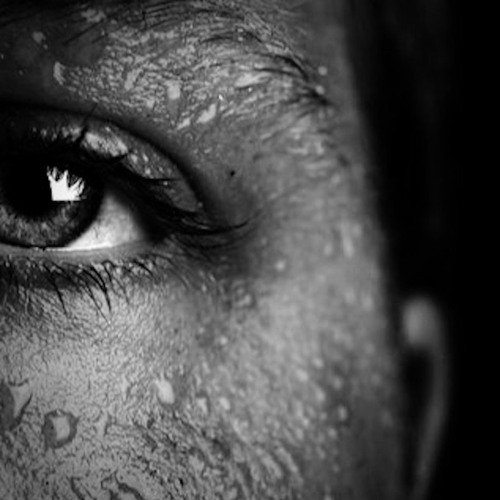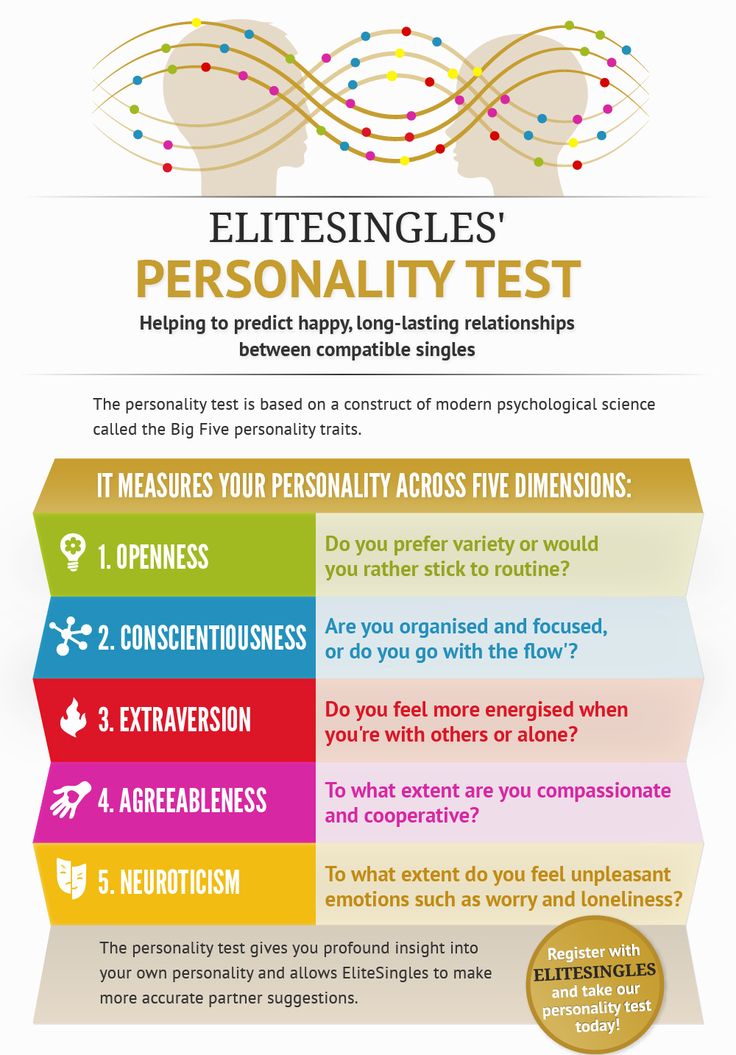Can anxiety cause sweating
Anxiety, Stress, and Hyperhidrosis
Sweat happens, for pretty much everyone.
It may not always feel (or smell) all that pleasant, but it’s a natural response to rising body temperature. When the weather heats up, or when you exert yourself during physical activity, your body produces sweat to help you stay cool. In short, sweat serves a pretty important purpose.
Sometimes, though, you might find yourself sweating when your body doesn’t need to cool off. Sweating commonly happens as a response to fear or stress, which is why you might notice increased sweating as a physical symptom of anxiety.
Like typical sweat, anxiety sweat can appear all over your body, but you’ll usually notice it most on the:
- palms
- soles of your feet
- face
- armpits
Of course, worrying about sweating too much can also contribute to feelings of anxiety — not to mention become a self-fulfilling prophecy. If you sweat a lot when facing stress, you might begin to worry about sweating in front of other people. But that very concern might lead you to break out in a sweat.
A sweaty face and palms can feel pretty uncomfortable, but anxiety sweating can also contribute to emotional distress. Not only can frequent sweating complicate your daily routine, but it can also diminish your confidence.
You might begin to avoid social situations or anything that might prompt a sweat response. In time, anxiety sweating could trigger feelings of loneliness, even depression.
Keep reading to learn more about why anxiety sweating happens, plus get a few tips to manage — and prevent — it.
You have your sympathetic nervous system to thank for anxiety sweating.
If that term rings a bell, it’s because you may have come across it before, also in the context of anxiety. When you face a threat, whether real or perceived, your sympathetic nervous system prompts the fight-flight-freeze response.
Sweating is one key sign of this response. Fighting a threat, or fleeing from it, requires you to expend energy, which can raise your body temperature. But overheating would make it difficult to escape or keep fighting, so your body signals your sweat glands to produce sweat and keep you cool so that you can carry on.
But overheating would make it difficult to escape or keep fighting, so your body signals your sweat glands to produce sweat and keep you cool so that you can carry on.
Living with an anxiety disorder can mean your body and brain remain on constant alert for potential threats. As a result, you might regularly notice a full range of emotional and physical symptoms — beyond your sweat glands working overtime.
It’s also worth considering the flip side, too: Worries about extreme sweating, or other bodily responses, can easily characterize generalized anxiety disorder (GAD). This condition involves extreme and consistent worry about everyday events and situations.
With GAD, you might, for example, find yourself worrying about sweating constantly, perhaps to the point where it:
- keeps you up at night
- disrupts your concentration at school or work
- makes it difficult to relax and enjoy hobbies and leisure time
To sum up: Anxiety can trigger sweating, but the knowledge that you sweat a lot can also lead to anxiety.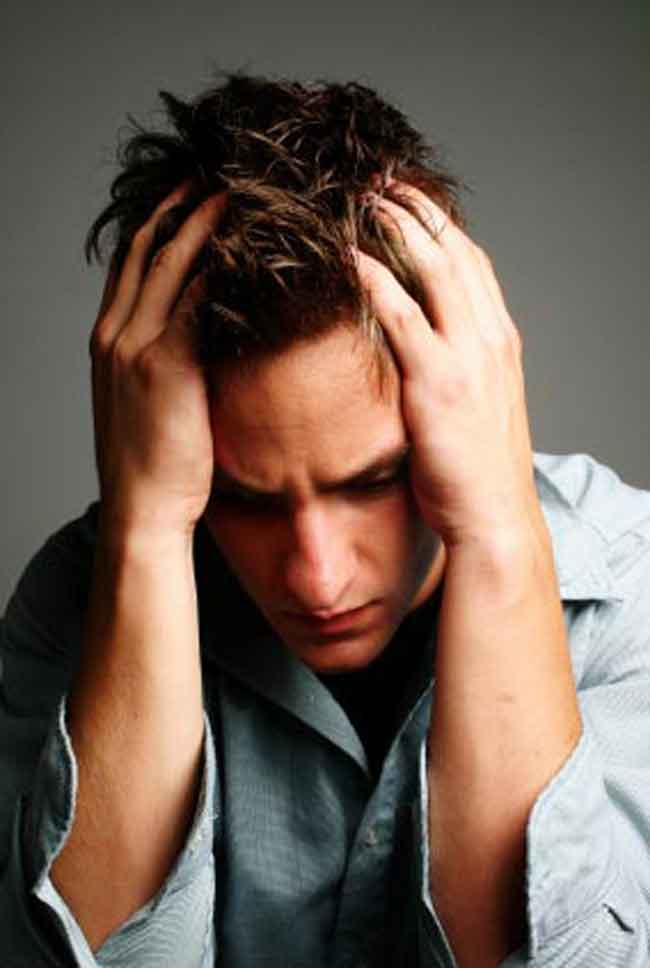
Social anxiety
Excessive sweating, or hyperhidrosis, can also happen as a symptom of social anxiety disorder. In fact, according to the International Hyperhidrosis Society, up to 32 percent of people with social anxiety experience hyperhidrosis.
If you live with social anxiety, you likely feel intense stress and fear at the thought of embarrassing yourself or drawing negative feedback from others. These feelings might intensify when you have to join a group, speak in front of others, or meet new people.
Accordingly, you might go to great lengths to avoid drawing attention to yourself, but you still might worry about doing something other people can judge — like sweating a lot.
Yet since fear and stress can trigger sweat, you might quickly notice increased perspiration, along with other physical symptoms, like:
- warmth and flushing, especially around your face (blushing)
- head pain
- lightheadness
- trembling
- clamminess in your hands
- nausea
- shortness of breath
Again, it’s also possible for sweating to prompt emotional distress that resembles social anxiety symptoms.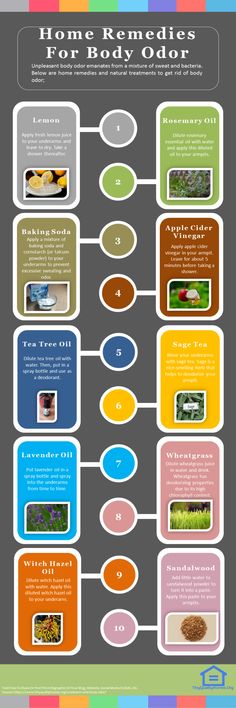 If you know you sweat a lot, you might certainly feel nervous about sweating so much that others notice.
If you know you sweat a lot, you might certainly feel nervous about sweating so much that others notice.
This fear could eventually prompt you to avoid social events, or any situations where people might notice you sweating.
Here are nine tips to manage social anxiety.
Other anxiety disorders
Evidence also links increased sweating to other anxiety disorders, namely panic disorder and specific phobia.
In a review of 86 studies, people with panic disorder tended to sweat more when they encountered a situation that triggered feelings of fear or panic. They also tended to sweat more on a daily basis — even when not facing a stressful situation.
People with a phobia, on the other hand, tended to sweat more when they encountered the object of their phobia.
Can other mental health conditions cause sweating?
Some emerging research also suggests a link between attention deficit hyperactivity disorder (ADHD) and increased sweating, though experts have yet to explore this potential connection in depth.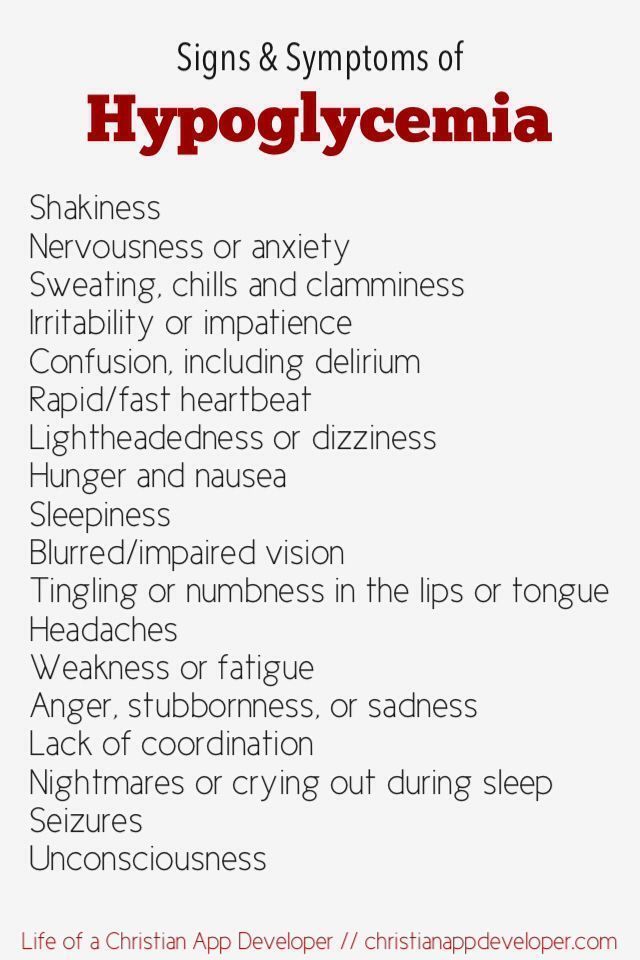
Anecdotal reports do suggest that many people notice increased sweating when taking Adderall, a medication that treats ADHD symptoms.
The thought of mentioning extreme sweating to a healthcare professional, or anyone at all, may provoke some anxiety and emotional discomfort.
This may help explain why many people living with hyperhidrosis don’t get treatment — yet excessive sweating that goes unaddressed can have a far-reaching impact on your quality of life.
Excessive sweating can lead to social withdrawal, for one. If you worry about sweating during your daily activities, you might choose to cancel them and stay home instead. You might feel sad, even guilty, about avoiding them, but helpless to do anything else.
These feelings might, in turn, prompt a sense of general hopelessness, along with other symptoms of depression.
All that said, treatment can help ease anxiety sweating, so it’s worth reaching out for support.
Options for treatment include:
- Antiperspirants with aluminum salts.
 If your regular antiperspirant doesn’t do much to curb your sweating, try an antiperspirant that contains a higher concentration of aluminum chloride — anywhere from 10 to 20 percent. You can apply these under your arms, of course, but you can also use them on your palms and the soles of your feet. A doctor or clinician can prescribe these antiperspirants when over-the-counter options aren’t strong enough.
If your regular antiperspirant doesn’t do much to curb your sweating, try an antiperspirant that contains a higher concentration of aluminum chloride — anywhere from 10 to 20 percent. You can apply these under your arms, of course, but you can also use them on your palms and the soles of your feet. A doctor or clinician can prescribe these antiperspirants when over-the-counter options aren’t strong enough. - Iontophoresis. This procedure delivers weak currents of electricity to your hands, feet, and underarms while you hold them underwater for up to 40 minutes. Experts believe this helps block the glands that produce sweat, but the effects are only temporary, so you may need regular sessions.
- Topical or oral anticholinergics. These medications help block certain cell signals, including those that prompt your glands to produce sweat. A healthcare professional might prescribe oral oxybutynin or topical glycopyrrolate as an off-label treatment for sweating.
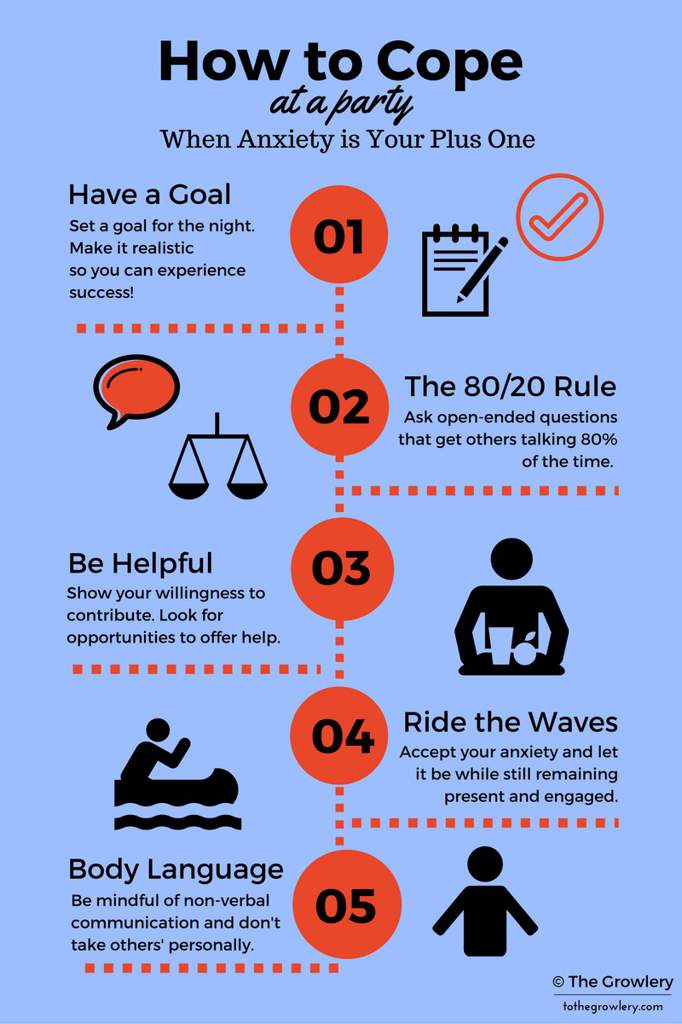
- Botulinum toxin (Botox) injections. Like anticholinergics, Botox also helps prevent sweating by blocking the release of the neurotransmitter acetylcholine, which triggers sweat production. Treatment involves several injections, but the effects of Botox can last up to 2 years.
Learn more about treatments for excessive sweating.
Working with a therapist to address symptoms of anxiety (or any other mental health condition) can also make a difference. Treatment for anxiety generally includes therapy, medication, or a combination of the two.
If you experience anxiety because of sweating, treating the sweating will likely help ease these feelings. Still, it’s always a good idea to get support from a therapist for any persistent emotional or mental health symptoms, regardless of their direct cause.
A therapist can recommend treatment approaches to manage uncomfortable feelings around sweating. They can also offer tips for coping with distress, so you don’t feel the need to avoid social situations.
In search of quick tips to avoid getting sweaty in the first place? Here are a few ideas to consider.
Prepare with an antiperspirant
Using an antiperspirant regularly can help prevent sweating before it happens.
As noted above, it may be time to try a stronger antiperspirant if your regular brand doesn’t keep you dry. Follow the directions on the label to make sure you use it at the right time — applying it at night may yield better results.
Practice relaxation techniques
When you start to feel anxious, techniques that soothe and ground you can help calm racing worries and fears before they become overwhelming.
Not only do relaxation exercises help ease emotional distress, but they can also provide relief from physical symptoms, like sweating.
Options to try include:
- progressive muscle relaxation
- guided imagery
- visualization
- deep breathing exercises
Get more tips to help reduce anxiety naturally.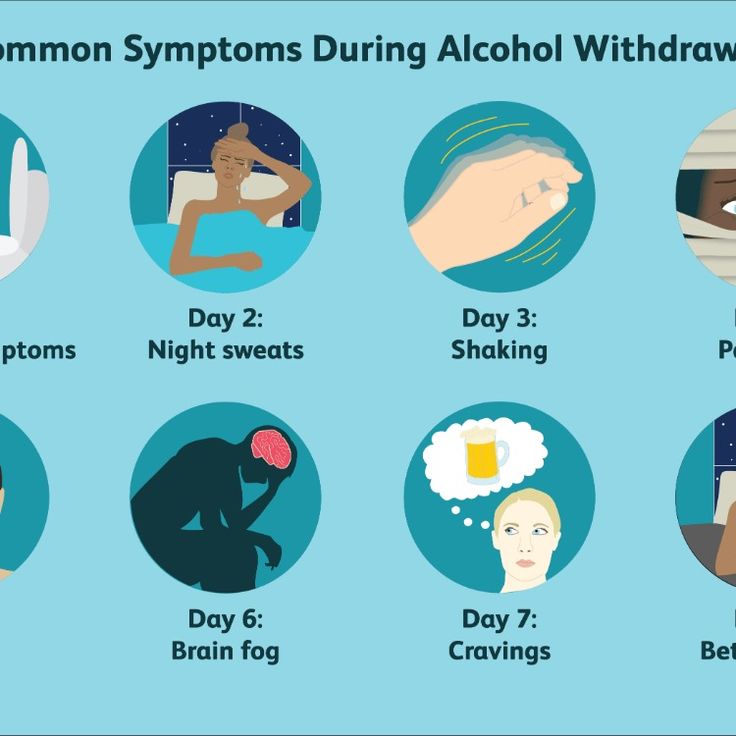
Take steps to stay cool
While anxious sweating doesn’t happen because you’re warm, feeling too hot could absolutely make matters worse. What’s more, if you’re overly warm, you might worry even more about sweating, which only feeds into the anxiety sweating loop.
You might try:
- dressing in easily removable layers
- sticking close to doors and windows
- keeping a cold drink nearby
- stepping outside for some fresh air
Find a positive distraction
Fixating on the source of your anxiety — from fears about sweating to anything else — generally only serves to intensify that worry.
It might not always feel easy, or even possible, to change the course of your thoughts. Still, making the effort to focus on something that inspires peaceful or positive feelings could have some benefit.
A few ideas:
- Watch a favorite funny video.
- Listen to a song that calms or energizes you.
- Think about something great that happened recently, or an upcoming event you’re looking forward to.
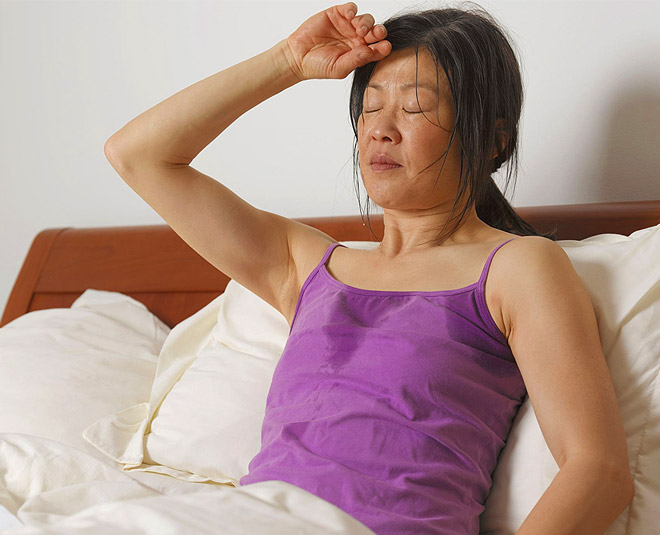
- Text a close friend or loved one.
- Grab a favorite book and re-read a chapter or two.
- Take a short walk.
When to reach out
In-the-moment coping tips often do make a difference, but they don’t replace professional support for anxiety.
A trained therapist can offer more guidance with identifying anxiety triggers and exploring helpful strategies for coping with unwanted thought patterns, sweating and other anxiety symptoms, and emotional distress that relates to excessive sweating.
Reaching out for support is a good next step when either anxiety or sweating begin to affect your:
- daily routine
- personal and professional relationships
- ability to attend school or work
- overall mood and quality of life
- view of yourself
In search of online support? Our review of the best online therapy options can help you find the right fit.
Anxiety sweating is pretty common, but you can find ways to cope with it — and the distress it can cause.
Plenty of different treatments can help prevent excess sweating. Treating the sweating can, in turn, lower your chances of getting stuck in that sweat-anxiety-sweat cycle, or even experiencing depression related to sweating.
Keep in mind, too, that getting support for anxiety can help with all anxiety symptoms, including sweating — but it never hurts to consider addressing both anxiety and sweating at the same time.
Not sure where to start? A healthcare professional can help you explore your options for treatment.
Anxiety and Sweating: What’s the Connection?
Anxiety is a normal symptom in a physical threat situation, "whereby adrenaline is injected into the bloodstream and prepares one with the flight, fight, freeze reaction, this can often lead to physiological symptoms, including sweating,” says Monica Vermani, PsyD, clinical psychologist and author of A Deeper Wellness: Conquering Stress, Mood, Anxiety and Traumas.
When some people become overly anxious, they are not aware of their body’s reactions. “Anxiety can impact your heart rate, blood pressure, and temperature, all of which contribute to sweating,” says Seth Feuerstein, MD, JD, assistant clinical professor of psychiatry at Yale University.
“Anxiety can impact your heart rate, blood pressure, and temperature, all of which contribute to sweating,” says Seth Feuerstein, MD, JD, assistant clinical professor of psychiatry at Yale University.
Why Do I Sweat More When I’m Anxious?
Debbie Hampton, author of Beat Depression and Anxiety by Changing Your Brain, explains it in scientific terms.
“Anxiety can absolutely cause sweating. When anxiety strikes, a fear signal zips to an ancient part of your brain, causing the instinctual freezing or jumping out of your skin behavior, and speeds on to the hypothalamus, which controls your autonomic nervous system,” Hampton explains. “That’s the system that produces the classic bodily fear responses—thumping heart, skyrocketing blood pressure, sweating, and rapid breathing.”
The adrenal glands pump out adrenaline and “glucose is released into your bloodstream,” she adds. “[Adrenaline] gives you a big boost in case you need to get the heck out of there or fight for your life, and cortisol floods your system keeping you ready for action.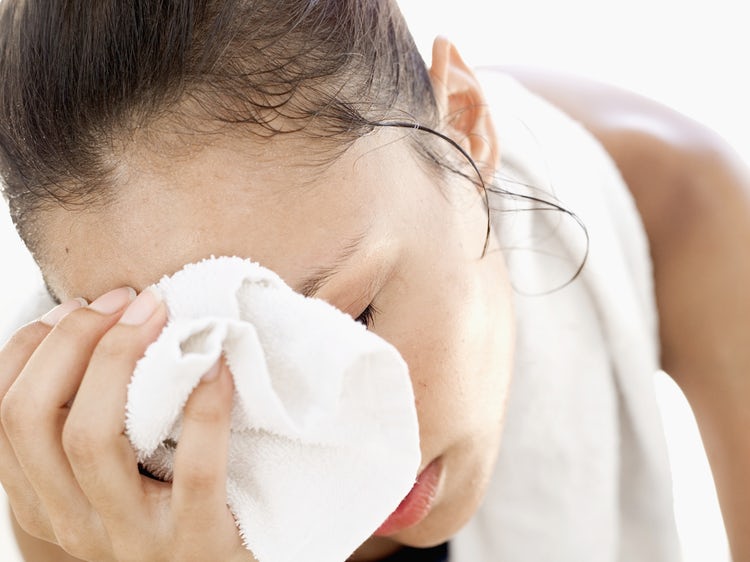 ”
”
In other words, yes, anxiety and sweating go hand—or rather, sweaty palm—in hand!
Other Common Causes of Anxious Sweating
Everyone has their own personal list of anxiety triggers—stressful events or experiences that make them sweat more than usual.
Here’s a list of common stressors that can really amp up the sweat and make people feel more anxious than normal:
Public speaking. Addressing a group is a frightening experience for most people.
Trying to control the uncontrollable. For example, a traffic-filled daily commute with road-rage drivers at the wheel.
Social anxiety. Meeting new people can be overwhelming for some. If you aren’t a fan of making small talk with strangers, that’s fine. But in some cases—at work, for example—it’s pretty tough to avoid interacting with new people.
Rejection. Fearing rejection—in all types of relationships—can be an anxiety trigger.
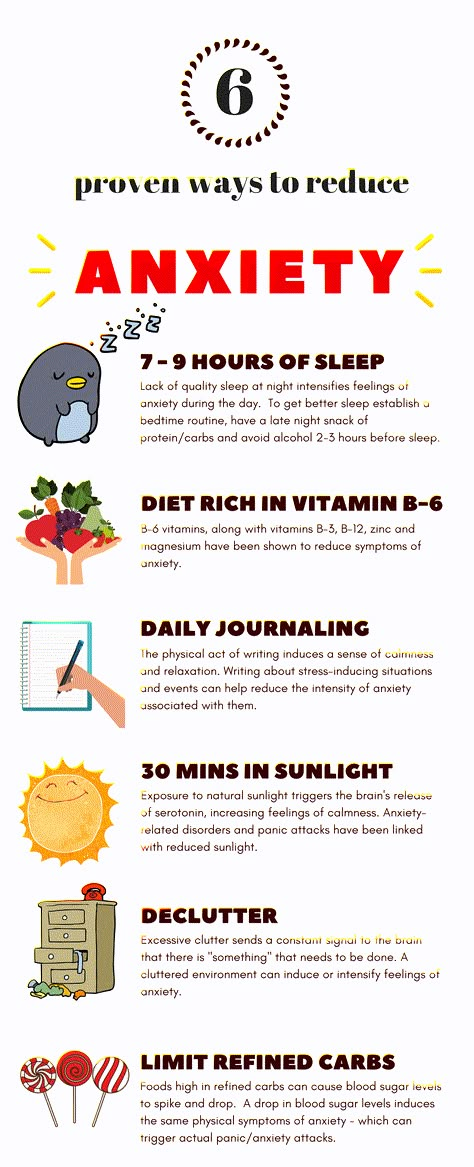 Handling rejecting by learning to “let it go” is easier for some than others.
Handling rejecting by learning to “let it go” is easier for some than others.Uncomfortable situations. If you hate confrontation, you may dread giving negative feedback like complaining to a customer service representative or disagreeing with a colleague or peer.
First impressions. When you are trying to impress someone—be it your boss, a colleague, a potential employer, or a person you’d like to date—making a good impression can get the sweat glands working overtime.
Where Does Anxious Sweating Occur?
Anxious sweating can occur just about anywhere on your body. The places where excessive anxiety sweating can be most embarrassing are when they are visible to others. Wet areas under your arms, on your hands and palms (in a handshake, for instance), or beads of sweat on your forehead or running down your face.
Some people even feel this sweat on their feet.
Becoming self-conscious or ruminating about it only exacerbates the problem and adds to your insecurity, which of course produces even more sweat.
Other Mental Health Conditions Cause Sweating, Too
Many mental health conditions are linked to sweating. Vermani says some of the most common include:
Social anxiety disorder
Panic disorder
Generalized anxiety disorder (GAD)
Obsessive-compulsive disorder (OCD)
Post-traumatic stress disorder (PTSD)
Specific phobias (fear of flying, anyone?)
“Your emotions are intricately expressed through your body. There is no separation,” explains Hampton. “Research suggests that people with hyperhidrosis—an excessive sweating condition—also seem to have higher-than-average rates of anxiety and depression. It’s important to understand that any emotion that activates a stress response could cause sweating, getting angry or becoming more stressed, for example.”
Does Anxiety Sweat Smell Different?
People often wonder if anxiety sweat has a different smell than regular sweat.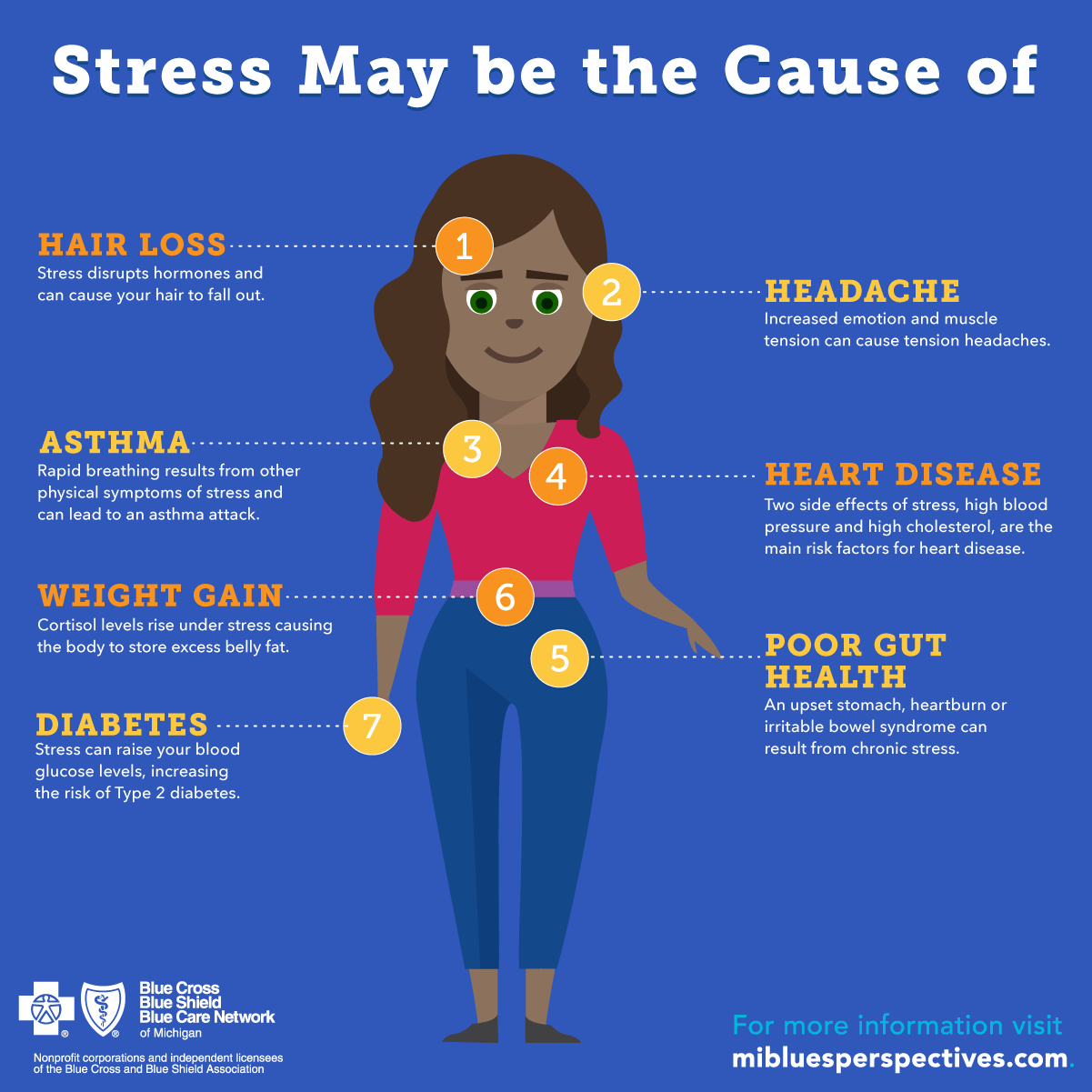 “It can,” explains Dr. Feuerstein. “Much of this specific sweat can come from a set of glands that have ingredients that do not smell initially. But over time, as bacteria break them down, they can have an odor.”
“It can,” explains Dr. Feuerstein. “Much of this specific sweat can come from a set of glands that have ingredients that do not smell initially. But over time, as bacteria break them down, they can have an odor.”
Vermani agrees. “Stress-induced or anxiety-induced sweat can have a slightly different odor than when sweating from overheating. When you are stressed, the body is activated into a natural response to a perceived threat. This triggers a rush of adrenaline, cortisol, and other stress hormones which can make your sweat smell different. The scent may be subtly different in many cases, but some sufferers describe stress sweat as a stronger, more sulfur-like odor.”
Anxiety Sweat Treatment
Using a deodorant or an antiperspirant is a good first step in the battle against anxious sweating. But sometimes you need something a bit stronger.
Anti-anxiety pills can help reduce sweating caused by anxiety. Benzodiazepines (i.e., alprazolam or Xanax) can be prescribed for panic disorder, generalized anxiety disorder, and social anxiety disorder.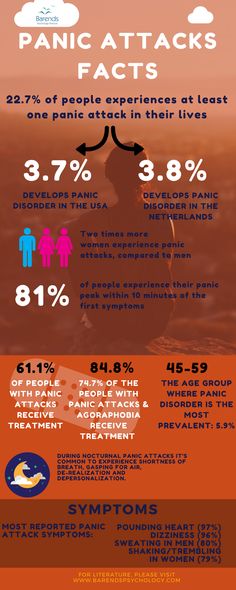 Doctors may also recommend a beta-blocker like propranolol, or using tools like mindfulness or deep breathing to slow the nervous system.
Doctors may also recommend a beta-blocker like propranolol, or using tools like mindfulness or deep breathing to slow the nervous system.
For excessive sweating, Botox injected into the areas where sweating is a problem can block the nerves from communicating with sweat glands. While effective, Botox injections must be repeated every six months or so.
Expert Tips to Prevent Sweating from Anxiety
Vermani recommends this list of tried-and-true tips to her clients.
Pause and reflect: Focus on your breath to calm physiological symptoms when you are anxious to reduce the flow of sweating.
Cool down your body: Get some fresh air.
Hydrate: Balance your body's electrolytes with fluids.
Relax: Let go, surrender, and relax your body. Learn to accept that sweat is a normal physiological response to stress.
Dress strategically: Choose clothing that makes you comfortable and helps you sweat less and makes sweating less apparent.
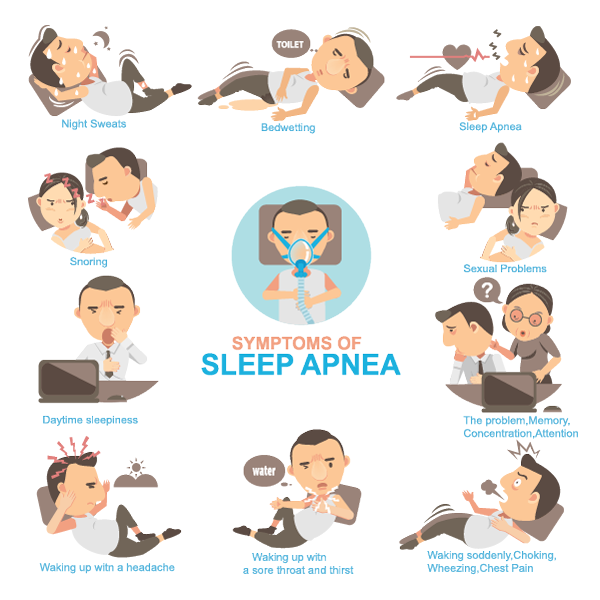 When possible, avoid synthetic fabrics like nylon and polyester, which don’t absorb sweat.
When possible, avoid synthetic fabrics like nylon and polyester, which don’t absorb sweat.Manage sweat: Carry a handkerchief to control sweat, and use a prescription-strength antiperspirant.
Seek professional help: An anxiety medication can lower the incidences of anxiety and reduce incidents of sweating.
Work with a therapist: In therapy, you will learn to challenge negative self-talk, work on your self-esteem, and build confidence in feared and stressful situations.
Calming Your Anxious Brain
“It’s important not to completely dismiss and overlook your fears,” says Hampton. “They can be valid information that warrants further exploration. Reasonable concerns are in your best interest and can keep you from potentially dangerous situations. However, being consumed and paralyzed by fear is actually the opposite. The wear and tear anxiety puts on your mind and body undermines your health and safety. The goal is to manage and process your fear in a way that is good for you.”
The goal is to manage and process your fear in a way that is good for you.”
Take a Deep Breath and Keep Moving Forward
You never know when a stressful situation can lead to anxiety sweating. One minute you can be on top of the world, and then something happens to send you into a tailspin and feel out of control.
No matter what is taking place in your life, take a deep breath, relax, and keep moving forward.
Notes: This article was originally published August 16, 2022 and most recently updated August 31, 2022.
John Riddle
John is the author of 34 books, including several health and medical titles. His byline has appeared in major publications across the US, and he has written articles for over 200 websites.
Eucerin: Sweating | Excessive sweating
- Products
Products
- Skin problems
Skin problems
- Acne-prone skin
- Skin aging
- Atopic dermatitis
- Dry skin
- hyperpigmentation
- Problems of the scalp and hair
- sweating
- Products
- Product Ranges
Product Ranges
- Anti pigment
- Eucerin Aquaphor
- Eucerin Aquaporin Active Facial
- AtopiControl
- Deodorants and antiperspirants
- Eucerin DermatoCLEAN
- DermoCapillaire
- Hyaluron Mist Spray
- Hyaluron Filler
- Hyaluron-Filler+Elasticity for firm and radiant skin
- Hyaluron-Filler + Volume-Lift
- Sun protection
- UreaRepair Plus
- Products
- Skin problems
- Consultation
Consulting
- Skin problems
Skin problems
- Acne-prone skin
- Skin aging
- Atopic dermatitis
- Dry skin
- Problems of the scalp and hair
- sweating
- hyperpigmentation
- Consultation
- about skin
leather
- Basic Skin Knowledge
- Skin treatment
- Indications
- Consultation
- Skin problems
- Our research
Our Research
- Behind the Science
- Research Background
- Our Ingredients
- special
Special
- atopicontrol
- Uncover Anti-Pigment
- Sustainability
Sustainability
- Environment Matters
- Quality Ingredients
- social inclusion
8 min.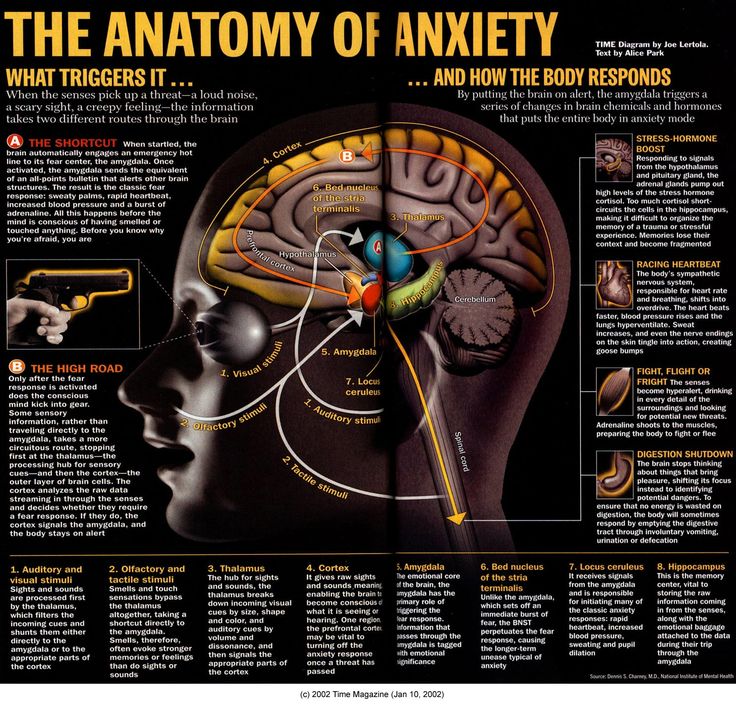 read
read
Show more
Factors Causing Hyperhidrosis
Excessive sweating can be temporary or long term
Even if the causes of hyperhidrosis are genetic, there are factors that can trigger a sweating flare-up. Just as in the case of an attack of temporary excessive sweating, they can be caused by anxiety or anxiety in a particular situation, meeting or event.
Try to plan your daily routine and avoid stress.Changes in lifestyle, changes in general health or body weight, alcohol, medications or drug use can also cause flare-ups of excessive sweating, as can changes in climate or temperature.
If hyperhidrosis is caused by infection, disease, or hormonal changes, it is secondary hyperhidrosis and the cause itself is a factor in its occurrence. In such cases, it is necessary to consult a doctor.
Small lifestyle changes can help if sweating is temporary
Everyone sweats, because sweating is a completely normal function of the body.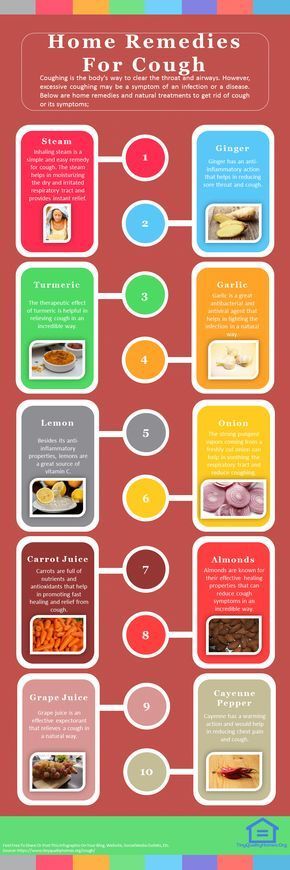 However, it can cause discomfort and psychological problems, and intense and uncontrolled sweating can seriously complicate life. Therefore, a condition called hyperhidrosis should not become a burden. Learn more about the different types of excessive sweating.
However, it can cause discomfort and psychological problems, and intense and uncontrolled sweating can seriously complicate life. Therefore, a condition called hyperhidrosis should not become a burden. Learn more about the different types of excessive sweating.
Causes And Stimulating Factors
Why sweating can become excessive
Overactive sweat glands (so-called eccrine glands) appear to be the main cause of hyperhidrosis.
Research has shown that in cases of primary or localized hyperhidrosis, the part of the brain that regulates sweating generates signals to the eccrine glands even when there is no particular need to cool the body. This dysfunction of the autonomic nervous system can lead to sweating, which occurs for no apparent reason, and brings trouble to a person.
Alcohol can trigger an outbreak of excessive sweating. The main cause of hyperhidrosis is a genetic predisposition. Primary or localized hyperhidrosis is considered genetic: there is a tendency to heredity (family history is present in 30 - 50% of people).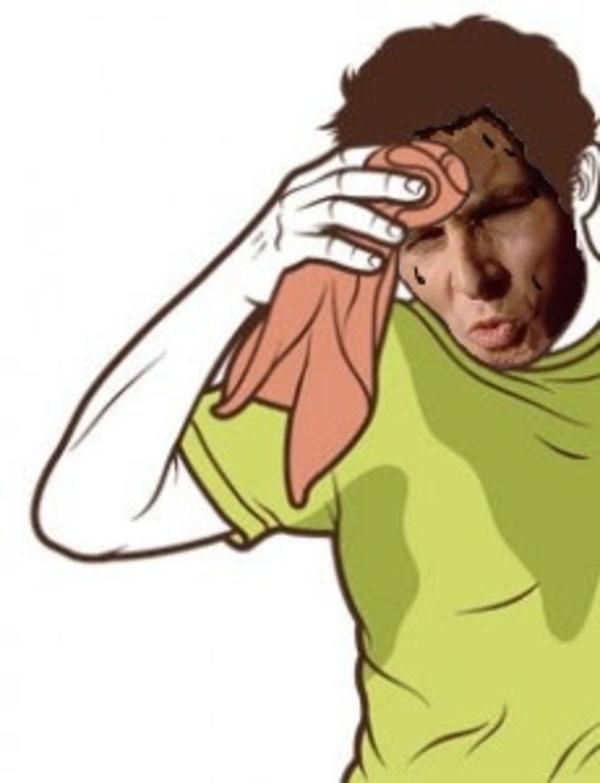 Often, relatives currently or previously suffered from local hyperhidrosis. It occurs in otherwise healthy people during puberty and usually peaks in the second or third decade of life.
Often, relatives currently or previously suffered from local hyperhidrosis. It occurs in otherwise healthy people during puberty and usually peaks in the second or third decade of life.
Causes of secondary hyperhidrosis others.
These may include:
• Pregnancy
• Menopause
• Anxiety
• Substance and alcohol abuse
• Cardiovascular disease
• Diabetes
• Respiratory failure
• Obesity
• Gout 6 )
• Use of certain drugs
• Peripheral nerve injury
• Parkinson's disease
Attention
It is very important that any case of secondary hyperhidrosis be examined by a physician to properly diagnose its cause.
Signs And Symptoms
Excessive sweating is normal
Sweating is a natural function of the body. Everyone sweats when the weather is hot or during physical activity, such as playing sports: Salty, clear liquid (99% water, 1% salt) is produced and excreted through the passages of the exocrine sweat glands, thus performing the important physical function of cooling the body.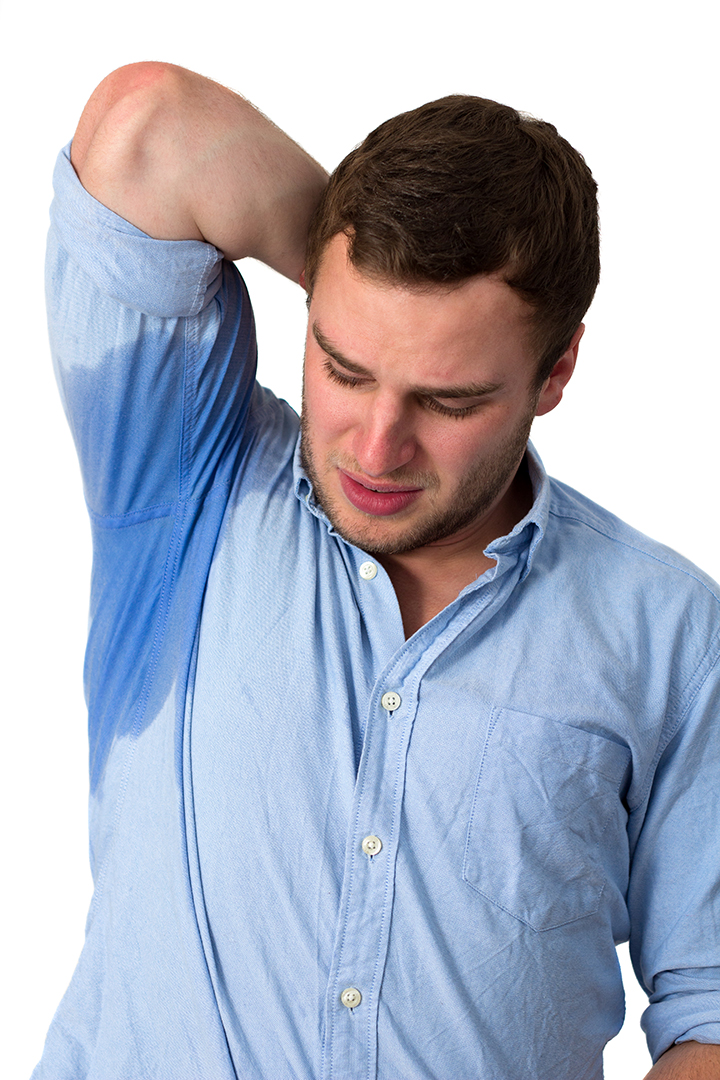
In addition, sweating may increase in case of emotional stress or nervous tension: in addition to the eccrine sweat glands, the so-called apocrine sweat glands are activated, which produce a relatively small amount of sweat of various composition, rich in proteins and lipids. Bacteria on the skin break down apocrine sweat, which leads to unwanted body odor.
Most people have also been exposed to excessive and unpredictable sweating, eg after exercise, in heat, etc. In such situations, the body produces and releases more moisture. If this occurs even under conditions that do not normally cause sweating (i.e. at a moderate temperature or when the body is at rest), this condition is called hyperhidrosis. People with hyperhidrosis may sweat profusely, and even changing the environment, such as exposure to the sun, may not help. The sweat glands of such people are hyperactive.
Am I Excessive Sweating or Hyperhidrosis?
You may sweat excessively if.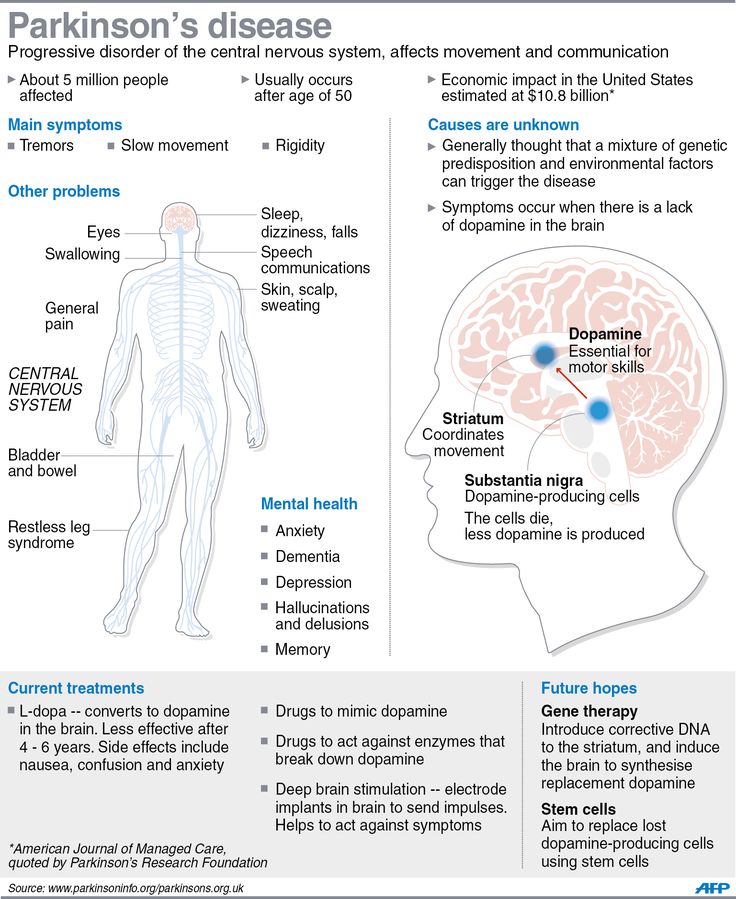 ..
..
You get large wet patches under your armpits, sweat drips off your face, and/or your socks get damp during exercise or in hot weather
Normal antiperspirants don't protect you enough from sweating
You feel better after use antiperspirant designed to prevent excessive sweating
Changes in your lifestyle reduce sweating
Excessive sweating may present with moderate to intense droplet formation, resulting in large wet patches on clothing, wet and smelly feet and shoes, and clammy and damp hands.
About 1% of the population sweats excessively for no apparent reason.
Two types of hyperhidrosis
Medications can trigger symptoms of hyperhidrosis. Hyperhidrosis can lead to stress, and stress can trigger these symptoms again - try to break the cycle and find a solution.The term hyperhidrosis is used when excessive sweating is beyond the normal level. There are two main types.
• If excessive sweating is felt on some parts of the body, such as arms, legs, parts of the face, or under the arms, this is called primary (idiopathic) or localized hyperhidrosis .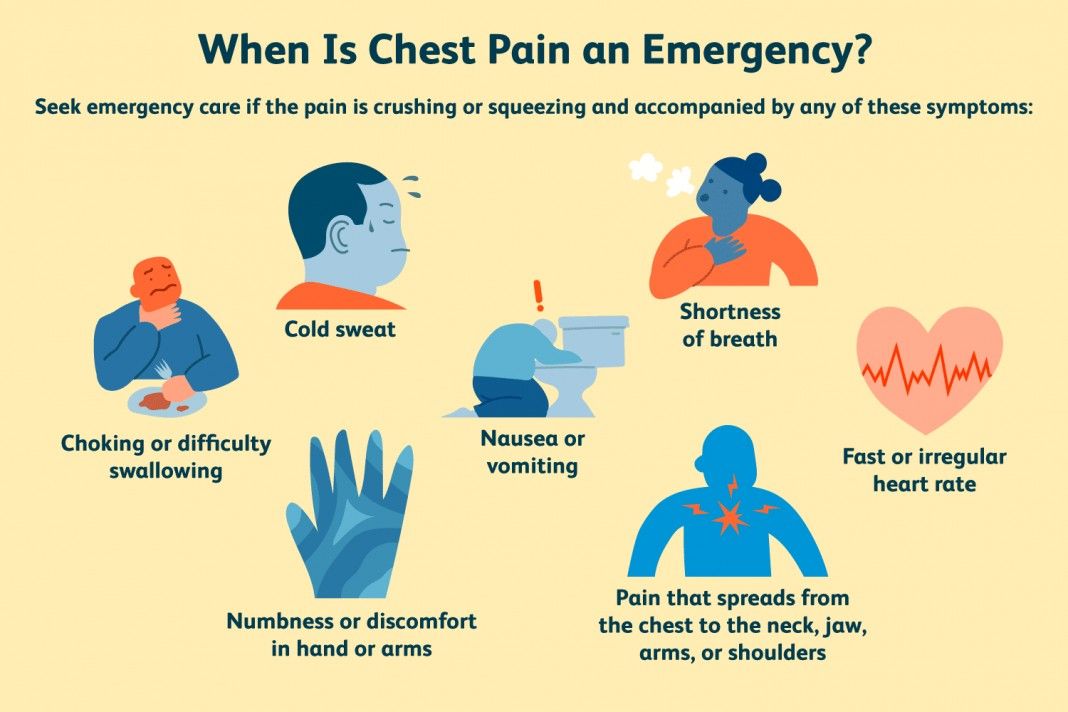
• Although excessive sweating is not considered a disease, it may be a symptom of another disease. Sometimes even serious enough. In this case, it is called secondary hyperhidrosis , which means that increased sweating is a side effect of another disease or has a hormonal cause (for example, pregnancy or menopause).
People suffering from primary or secondary hyperhidrosis may feel awkward, anxious, sometimes even exhausted. Thus, heavy sweating can have serious psychological consequences, such as depression and anxiety caused by concern about other people's reactions.
Symptoms - manifestations of excessive sweating
There is no established way to evaluate excessive sweating in terms of "amount of sweat". However, if heavy sweating interferes with daily life and normal activities, it may be hyperhidrosis.
Hyperhidrosis can also cause shyness, try to participate in social activities such as playing sports.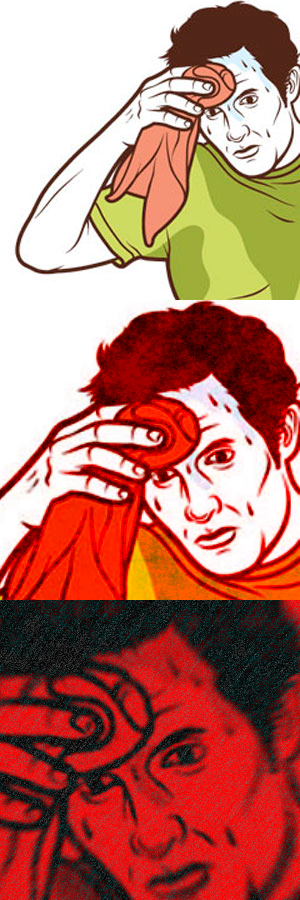 Hyperhidrosis is always noticeable.
Hyperhidrosis is always noticeable. Consider a method that can help diagnose hyperhidrosis:
Primary hyperhidrosis most likely occurs when excessive sweating has been observed for more than six months. It mostly occurs in the armpits, palms, soles, or craniofacial areas. This process is quite symmetrical, does not happen at night and in most cases occurs at least once a week. Hyperhidrosis is genetically determined and manifests itself before the age of 25 years.
In case of primary or local hyperhidrosis (when only certain parts of the body are affected), the risk areas are:
• armpits (axillary hyperhidrosis)
• back
• palms (hands hyperhidrosis)
• face (facial hyperhidrosis)
• soles of the feet
• chest
• back of knees
These areas have an unusually high concentration of exocrine glands responsible for sweating. Flashes of localized sweating, however, can occur simultaneously on several parts of the body.
Frequency of hyperhidrosis
One or more episodes of excessive sweating per week is normal for most of those with primary or localized hyperhidrosis (but not during sleep).
For those who suffer from secondary hyperhidrosis (when such a condition has a definite cause), the frequency of sweating depends on the development of the disease that caused it.
You may have hyperhidrosis if...
You sweat a lot more than most people
You have at least one episode of excessive sweating per week
Have a history of hyperhidrosis in your family
You suspect that you have a sweating disorder
Coping with flare-ups of excessive sweating can impair the quality of daily life:
Frequent showering or changing clothes in one day is time-consuming, reluctance to take off jacket or awkwardness when shaking hands, for example, can lead to awkwardness in public, loss of desire to attend sporting events . This can even affect professional activities (for example, the maintenance of tools or the use of a keyboard can become problematic in case of localized hyperhidrosis on the hands). The result can be social self-isolation of people suffering from hyperhidrosis.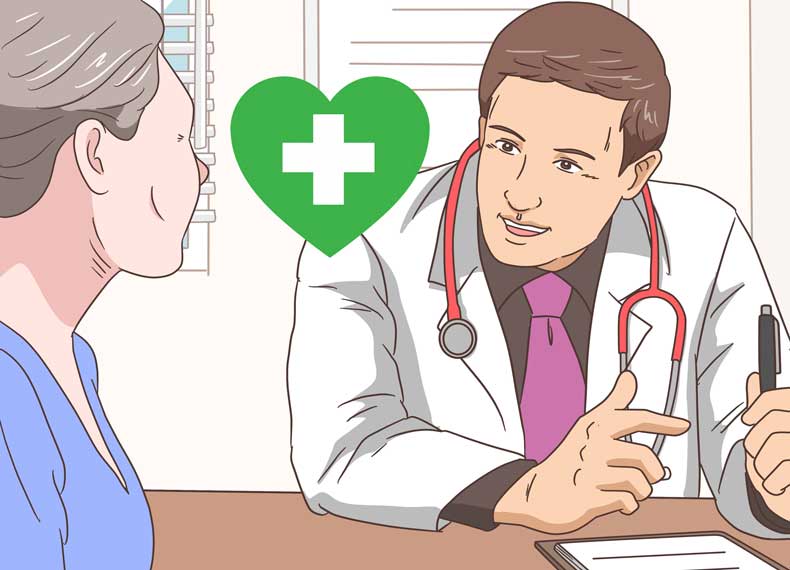
Procedures and measures that help with hyperhidrosis
There is no remedy that stops any form of sweating. After all, this is an important function of the body. However, people who suffer from hyperhidrosis can choose one of the ways to get rid of the disturbing symptoms of hyperhidrosis. From some of them - even for a long time.
Treatment for hyperhidrosis varies and should be discussed with your doctor.A wide range of surgical and non-surgical methods are available that differ in cost, side effects and duration of action. Most of them act on the nerves that stimulate the sweat glands.
Effective treatment can lead to a significant improvement in the lives of patients, provided that diagnosis and treatment are carried out carefully.
Attention
The means used must also be agreed with the doctor.
Topical application: antitranspirant
Antitranspirants contain aluminum salts that act by partially and reversibly blocking the ducts of the sweat glands.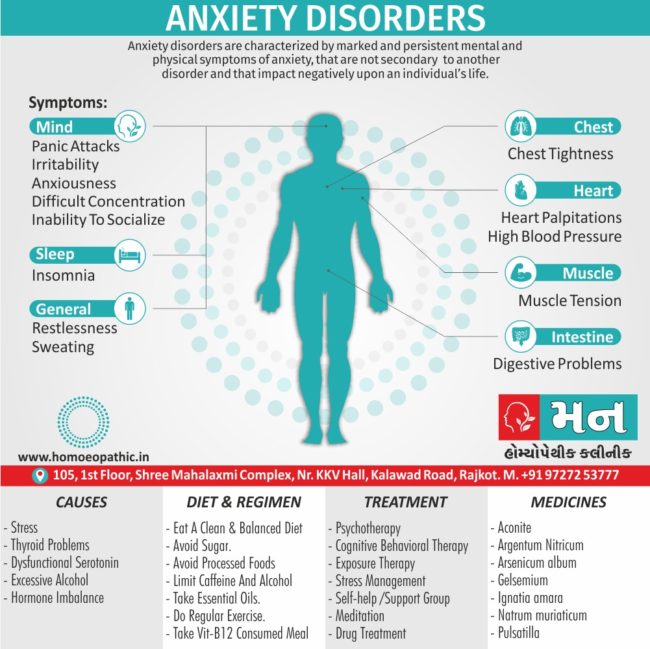
Antiperspirants (also called antiperspirants) are especially effective in reducing excessive sweating in the armpits due to the action of their main ingredient (based on aluminum salts) and are usually the first remedy recommended by dermatologists, as it is more of a "cosmetic" and non-invasive way to keep sweating is normal.
Antitranspirants contain aluminum salts as active substances, such as aluminum hydrochloride (ACH) or aluminum chloride (ACH). They act on the eccrine and apocrine sweat glands, partially and reversibly clogging the ducts of the sweat glands, thus reducing the amount of sweat they secrete. These seals are harmless. Since less sweat is produced, there is less hydration and noticeably less odor. Antitranspirants are available as sprays or roll-on deodorants and even in small amounts can significantly reduce sweating.
In cases of excessive sweating, we suggest trying the following treatments:
Use Eucerin Antiperspirant Roll-On Deodorant 48 Hours Protection in the evening before bed and in the morning.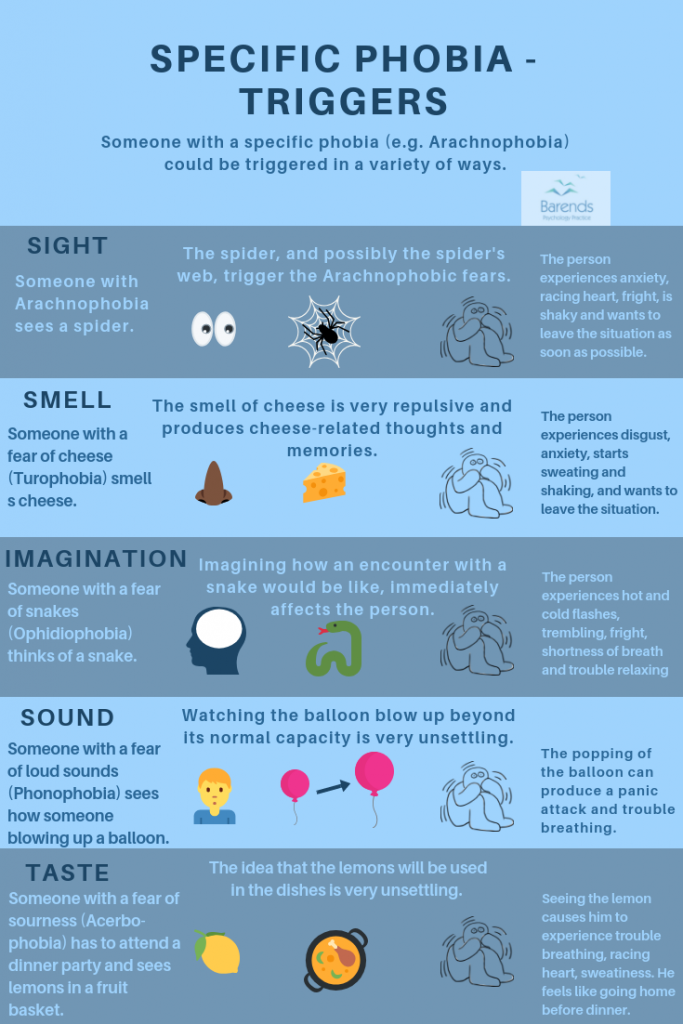 Using Eucerin Antiperspirant Roll-On 48 Hours Protection in the evening allows the active ingredients to clog the sweat glands. They don't wash off in the shower and stay on for at least two days. Therefore, the effect of the product increases with increasing frequency of use.
Using Eucerin Antiperspirant Roll-On 48 Hours Protection in the evening allows the active ingredients to clog the sweat glands. They don't wash off in the shower and stay on for at least two days. Therefore, the effect of the product increases with increasing frequency of use.
If the effect is not enough for your individual needs, we suggest you try Eucerin Intense Antiperspirant Spray 72 Hour Protection for maximum effectiveness against heavy perspiration and odor. Please make sure you read the instructions completely and follow the instructions for use carefully and do not use it every day for a longer period than allowed to avoid irritation.
Dermatological treatment options include:
• Botulinum Toxin Type A
(Commonly known by the brand name Botox) Particularly useful for those suffering from underarm sweating, and considered one of the best treatments tested to date, is injected with a neurotoxic agent to help prevent excessive underarm sweating: the nerve pathways that stimulate the sweat glands are blocked and sweating stops.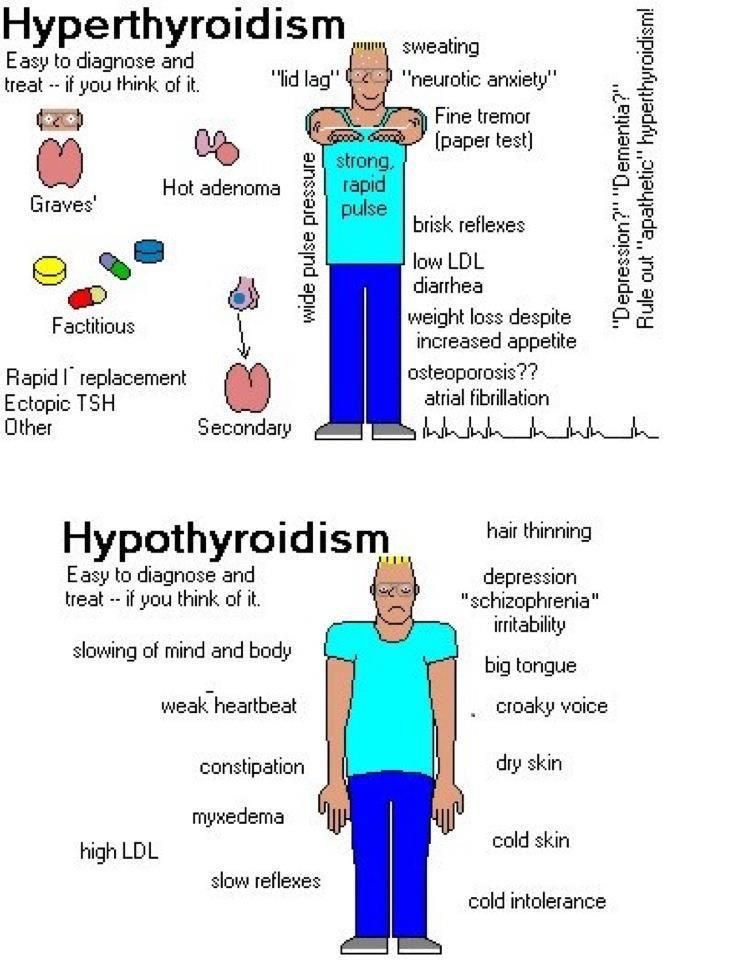
• Iontophoresis (Electrical Treatment)
With this method, the skin is saturated with ions by an electric current. Ions act on the sweat glands, temporarily "switching" them. Iontophoresis is suitable for the treatment of local hyperhidrosis on the hands and feet. In severe cases, even surgical procedures on the thyroid gland can be applied. Procedures (mostly performed with a laser or surgery) are aimed at eliminating the neural pathway that stimulates sweating. Recommended for patients suffering from severe localized hyperhidrosis of the arms, underarms or face.
• Medications with so-called anticholinergics
In this systemic treatment, neurotransmitter blocks help prevent stimulation of the sweat glands. However, these drugs are predominantly used to treat secondary hyperhidrosis and have serious side effects.
Other ways and measures that can help
Symptoms of excessive sweating can be reduced by lifestyle changes such as:
Certain foods can mimic the symptoms of hyperhidrosis.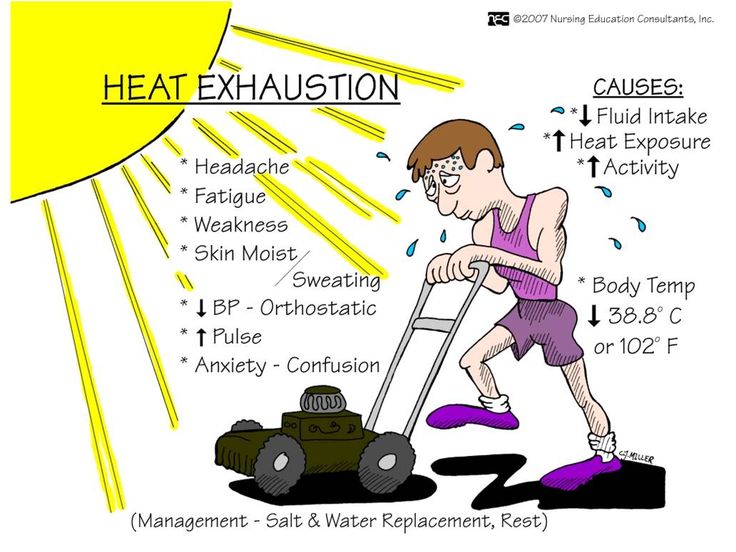
• Avoid spicy foods, alcohol, and coffee
• Avoid sun exposure
• Wear clothing made from natural fibers such as cotton
• Choose light or very dark clothing that will hide signs of sweating
• Underarm pads are also a good option. They will absorb sweat and protect clothing
Anxiety and panic disorders | Articles by EMC doctors about diseases, diagnosis and treatment
Anxiety treatment at the European Medical Center:
-
Thorough diagnosis of the patient's mental state, identification of risk factors.
-
Drawing up an individual treatment program, including pharmacotherapy, cognitive-behavioral therapy, if necessary, TMS.
-
The Clinic for Psychiatry and Psychotherapy constantly organizes trainings that teach relaxation skills and coping with anxiety symptoms.
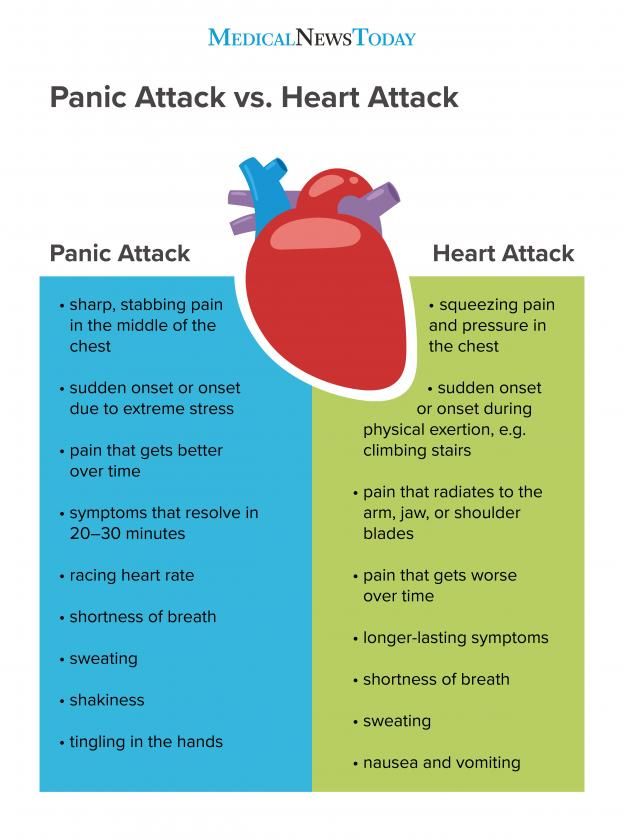
The experience of anxiety is a normal adaptive response of the body to changing conditions or threatening events. However, fears can be a serious problem for a person if the level of anxiety reaches pathological proportions. This imposes restrictions on the normal functioning of the patient, which significantly reduces his quality of life. Also, the long-term existence of an anxiety disorder dramatically increases the risk of other mental disorders, such as depressive disorder (by about 15 times) and pathological addictions (by about 20 times).
Major anxiety disorders include:
Panic disorder - the main symptoms of the disease include recurring attacks of irrational anxiety (panic), not limited to a specific situation or any specific circumstances.
Dominant symptoms : sudden onset of tachycardia (rapid heartbeat), sweating, tremors, dry mouth, chest pain, difficulty breathing, feeling of choking and nausea, as well as dizziness and a feeling of unreality of what is happening.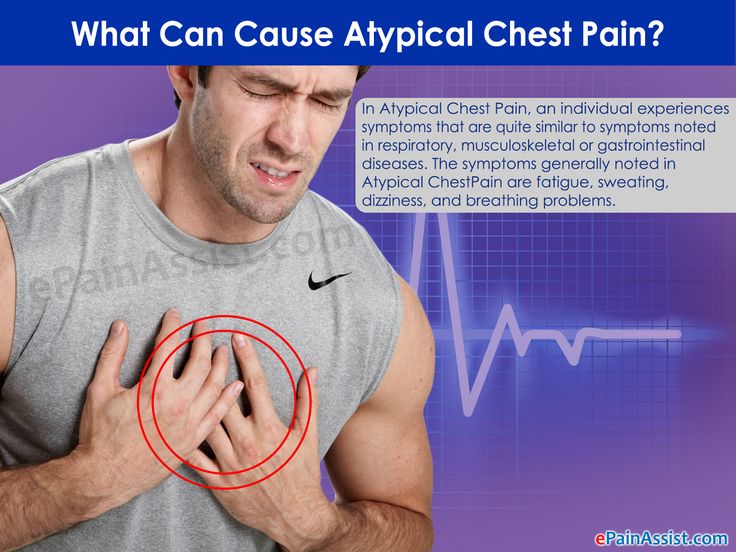
Agoraphobia is a group of anxiety disorders that encompasses a range of phobias, which include a morbid fear of open spaces and public places. Patients experience uncontrollable anxiety when they are in a crowd, refuse to visit shops and other crowded places, limit their exits from the house unaccompanied, and have difficulty using public transport on their own. Agoraphobia is one of the most maladaptive types of phobic disorders.
Dominant symptoms : when immersed in a frightening situation, anxiety increases sharply in patients, heartbeat and breathing become more frequent, sweating and dizziness appear, in some cases a panic attack develops. As a rule, such patients try in every possible way to avoid those situations that cause them a panic attack, which contributes to the consolidation of an anxiety disorder, changes their usual lifestyle and interferes with normal life.
Generalized Anxiety Disorder - is manifested by a constant feeling of anxiety, tension and persistent anxiety about a variety of life events, the likelihood of which is extremely small.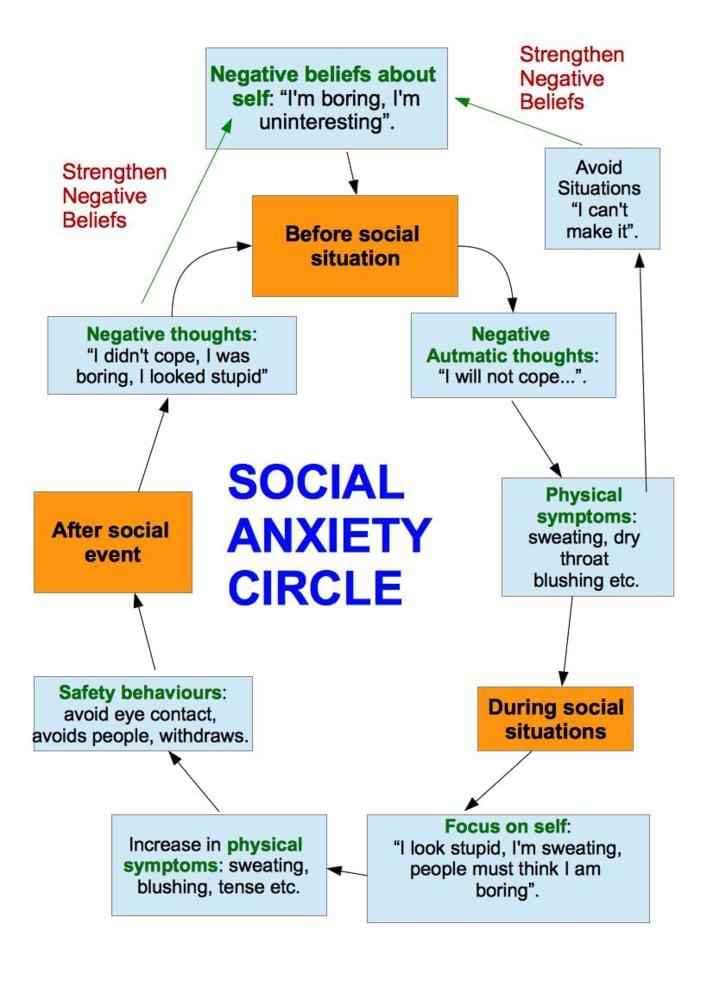 In this case, anxiety is not limited to any specific external circumstances, so it is often difficult for the patient to outline the circle of situations that trigger panic.
In this case, anxiety is not limited to any specific external circumstances, so it is often difficult for the patient to outline the circle of situations that trigger panic.
Dominant symptoms : the most typical complaints are a feeling of constant nervousness, trembling, muscle tension, sweating, tachycardia, dizziness, discomfort in the epigastric region. Often the patient experiences fear for his loved ones, suffers from gloomy forebodings. For a diagnosis of generalized anxiety disorder, the symptoms described must have been present for at least 6 months.
Social phobia - at the heart of this anxiety disorder is the fear of being seen by others, as well as being in an awkward position, being ridiculed or humiliated, which leads to the formation of a reaction to avoid such situations.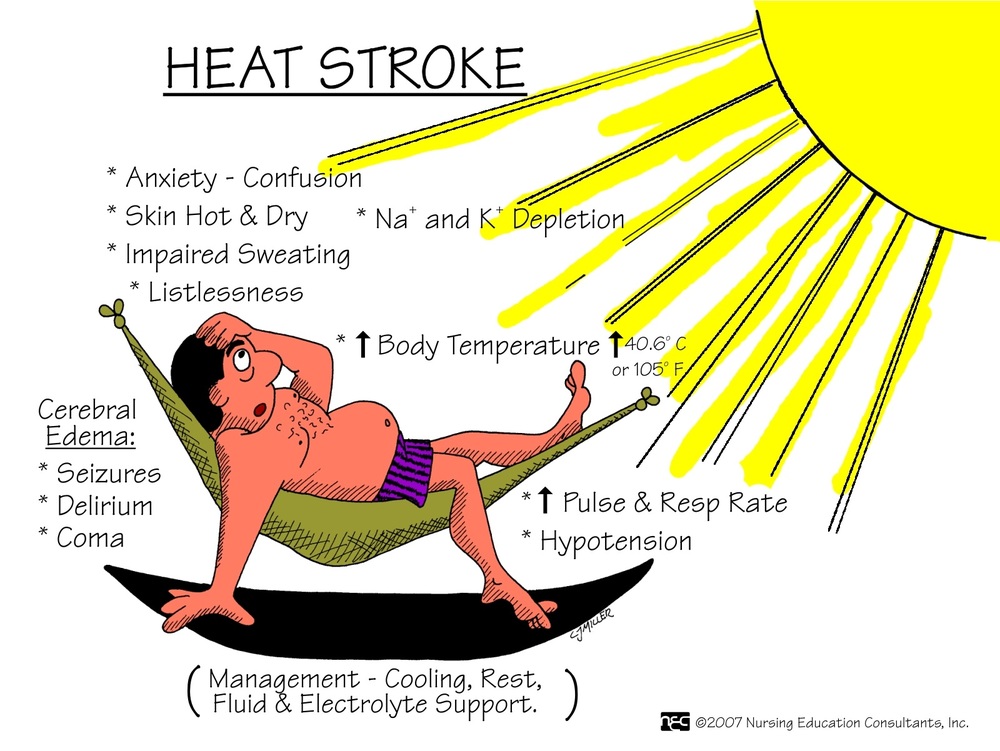 Often this disorder is combined with low self-esteem and fear of criticism. Fears can manifest themselves when eating in a public place, the need to maintain a conversation during a casual meeting with friends in the presence of strangers, visiting public places and group activities.
Often this disorder is combined with low self-esteem and fear of criticism. Fears can manifest themselves when eating in a public place, the need to maintain a conversation during a casual meeting with friends in the presence of strangers, visiting public places and group activities.
Dominant symptoms : hand tremor, nausea (fear of vomiting may be present), urge to urinate or defecate (or fear of such urge), flushing of the face. Sometimes the patient takes one of these side manifestations of anxiety for the underlying disease. Avoidance of frightening situations causes significant psycho-emotional stress, since the person himself realizes that his reaction is excessive and has no reasonable grounds.
Specific phobias are fears limited to narrowly specific situations, such as, for example, being in close proximity to animals of a certain biological species, being in the dark, at height, in a confined space. Specific phobias also include fear of air travel, fears of eating certain foods, visiting a doctor, medical procedures, and the sight of blood.